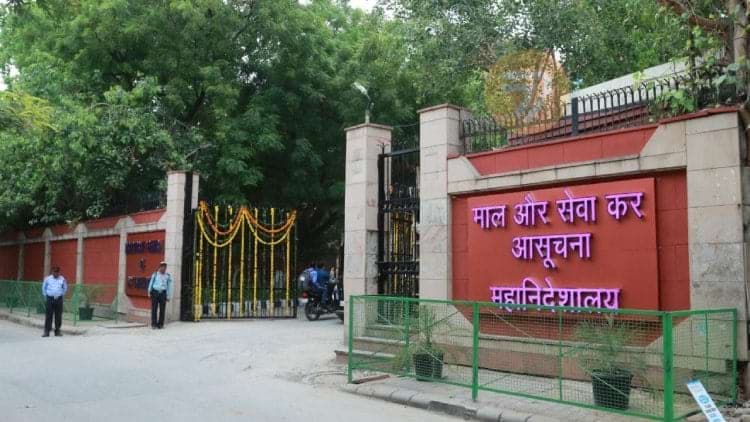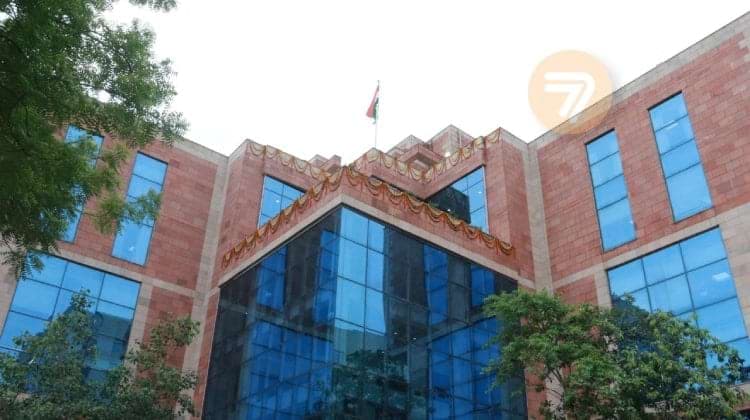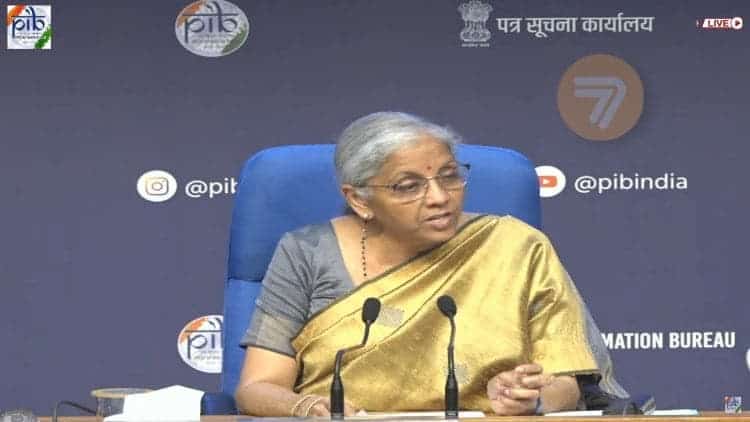DGGI Recommends More Regulations for Online Money Games
19 Sep 2024
CBIC Chairman Sanjay Kumar Agarwal, DGGI Principal Director General Anil Kumar Gupta, and other officials inaugurate DGGI’s relocation to a new building in Dwarka, Gujarat. Image: DGGI.gov.in.
GST Evasion Doubled to ₹2.37 Lakh Cr; Gaming Flagged as “High-Risk”
India’s Real Money Online Gaming (RMOG) sector is in the spotlight. This after the release of the Directorate General of GST Intelligence (DGGI) Annual Report 2023-24, Trends in GST Evasion.
The report, released on Saturday, the 14th of September, defined online gaming with money as a “high-risk” sector “for tax evasion, money laundering, cyber frauds, juvenile delinquency and various socio-economic evils.” Other sectors with high rate of GST evasion detection include the provision of banking, financial, and insurance services and the trade with some metals and tobacco goods.
The DGGI, the investigative unit under the Indian Ministry of Finance’s Central Board Of Indirect Taxes & Customs (CBIC), reported the detection of 6084 cases of GST evasion for the Fiscal Year of 2023-24 (FY24). The evasion estimated a total worth of ₹2,01,851 crore. Plus ₹35,377 crore detected by CGST Zones in 14,492 cases. A more than double-fold jump compared to the ₹1.01 lakh crore detected in 4872 cases for FY 2022-23.
Online Money Gaming Responsible for largest GST evasion in FY24
The sector with the biggest detected GST evasion for FY24 was online money gaming. It’s responsible for ₹81,875 crore over 78 cases. Gaming was followed by the Banking, Financial, and Insurance (BFSI) services sector. Responsible for ₹18,961 crore evaded across 171 cases. The Iron, Copper, Scrap, and Alloys sector stands for ₹16,806 crore over 1976 cases.
Voluntary payment of detected GST dues reached ₹26,605 crore in FY24. This amount compares to ₹20,713 crore in FY23. Businesses from the Real Money Online Gaming sector voluntarily paid ₹53 crore.
Authorities found that around 46% of detected evasion cases were connected to non-payment of tax. 20% were related to forged Input Tax Credit (ITC). 19% was involved wrong availment or non-reversal of ITC.
The DGGI Mumbai Zonal Unit detected the highest GST evasion at ₹70,985 crore. Delhi follows with ₹18,313 crore, Pune with ₹17,328 crore, Gurugram with ₹15,502 crore, and Hyderabad with ₹11,081 crore.
Detection of GST evasion cases by the Directorate General of GST Intelligence has been growing ever since the introduction of GST in July 2017. Beginning at ₹7879 crore detected in FY18, continuing with ₹19,319 crore in FY19, ₹21,739 crore in FY20, ₹31,908 crore in FY21, to ₹50,325 crore in FY22. FY23 saw a doubling to ₹1.01 lakh crore. And doubling again to ₹2.02 lakh crore in the last reported FY24.
DGGI FY24 Performance Includes 34 SCN Worth to Gaming Cos ₹1.1 Lakh Cr

DGGI reported the completion of 4398 GST evasion cases involving ₹1,75,999 crore for Fy2023-24. This includes 2382 cases for a total of ₹1,63,055 crore completed by the issuing of a Show-Cause Notice (SCN). Authorities closed 2016 cases without a Show Cause Notice (SCN) based on voluntary deposit payment.
Indian GST legislation did not define the term “Online Money Gaming” before October 1, 2023. Many of the reported tax evasion cases related to online money games “are essentially based on the premise that such games amount to betting/gambling, and are therefore classifiable as Goods under GST law, on which GST is payable @28% on the face value/Buy-in value of the bet,” the DGGI admits in its latest annual report.
Based on this, the DGGI reported initiating action against 118 domestic gaming companies. This includes the issuance of SCNs to 34 taxpayers for a total of ₹1,10,531.91 crore. Many of those cases are currently subjudice at the Supreme Court of India. Here, the businesses have challenged the DGGI notices and the constitutional validity of the respective provisions in GST Acts.
“Sir William Raynell Anson, a renowned British jurist, has defined a wager or bet as ‘a promise to give money or money’s worth upon the determination or ascertainment of an uncertain event’. The Hon’ble Supreme Court’s verdict on the matter shall have a significant impact on how the concept of online money gaming is understood,” the DGGI report stated on the subject.
Registration of Offshore Entities for the Purposes of GST
Over the years, 574 offshore-registered companies providing OIDAR (Online Information and Database Access or Retrieval) services to Indians have registered with the DGGI. Collection has grown from ₹80 crore in FY18 to ₹2675 crore in FY24.
“However, there are other entities that are non-cooperative and appear to intentionally avoid tax compliance,” the DGGI pointed out. “These include various online casinos based out of tax-havens like Malta, Cypress, Curacao, BVI etc. There are also other entities that are difficult to reach out to. On account of them operating through VPN or cloud based platforms.”
Authorities have initiated investigations against 658 offshore entities and recommended blocking measures for 167 websites (URLs).
Setting Up of an Inter-Department Committee Proposed

To ensure tax and regulatory compliance by the proliferating Real Money Online Gaming sector, the DGGI proposed the setting up of a new Inter-Departmental Committee consisting of members of all relevant authorities.
“Therefore, a multi-prolonged approach to deal with this sector is need of the hour. An Inter-department committee comprising CBIC, CBDT, ED, MeITY, MCA, MIB, RBI, Department of Consumer Affairs, and the like along with industry bodies may be set up to develop comprehensive strategies and regulations to combat the proliferation of such platforms, ensuring regulatory compliance, consumer protection and national security,” the DGGI report urged.
“Creating awareness and education among digital nagriks about safe and responsible gaming practices, promoting the use of legitimate platforms registered with MeitY or verified as permissible Real Money Gaming Platforms under the IT Rules, 2021, and entering into reciprocal arrangements with foreign governments for information sharing and tax enforcement may go a long way in effecting regulatory compliance in this industry,” the DGGI wrote.



